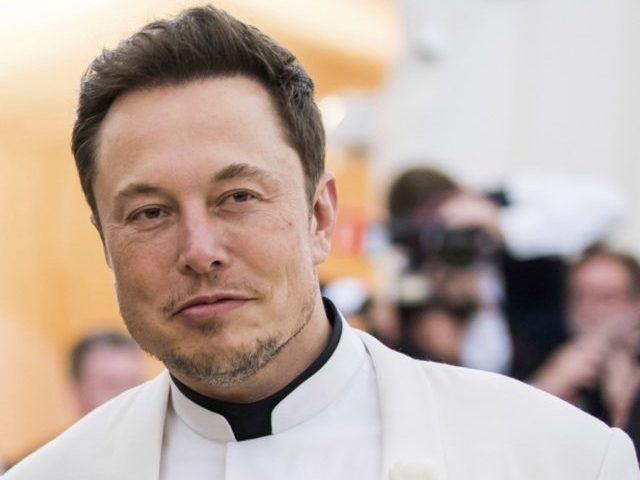Elon Musk’s Telsa has released its 2020 Q1 delivery numbers, reporting 88,400 vehicles delivered so far this year. The company beat analyst expectations of about 80,000 deliveries.
CNBC reports that electric car manufacturer Tesla reported on Thursday that it delivered approximately 88,400 vehicles in the first quarter for 2020 beating expectations set by analysts of around 79,900.
Telsa’s stock price jumped on Friday in response to the numbers. Tesla combined the deliveries of 76,200 Model 3 sedans and Model Y cross-over SUVs and delivers of 12,200 older Model S and Model X vehicles.
Analyst had expected combined deliveries of 68,674 Model 3 and Model Y vehicles and 11,234 combined Model S and X vehicles. The estimates took into account the Wuhan coronavirus pandemic sweeping the globe which forced Tesla to slow vehicle production at its factory in Fremont, California, in the last week of March while production in Shanghai was suspended in January and February.
Without the shutdowns due to the coronavirus, analysts estimated that Tesla could have delivered as many as 95,528 vehicles. In March it was reported that a county sheriff’s office spokesman stated that Tesla cannot continue its normal factory operations as the San Francisco Bay Area was forced to lock down to prevent the spread of the Wuhan coronavirus. The comment from the sheriff’s office related to Tesla’s factory in Fremont, Alameda County, where 10,000 employees work producing approximately 415,000 electric vehicles annually.
The order from the sheriff’s office came shortly after Tesla began to increase the production of its Model Y sport-utility vehicle at the factory, CEO Elon Musk has stated that the model will see higher demand than all of Tesla’s other models combined. Alameda is one of nine counties covered by a “shelter in place” order that limits activity, travel, and business function to only the essentials and advises individuals to stay at home except for the most important trips.
“Tesla is not an essential business as defined in the Alameda County Health Order. Tesla can maintain minimum basic operations per the Alameda County Health Order,” the spokesman said. The order states that non-essential businesses can only maintain minimum basic operations such as maintaining inventory value, ensuring security and processing payroll. Violations could result in a fine, imprisonment, or both.
Recently, Panasonic announced that it plans to exit its solar cell production at Tesla’s New York Gigafactory, the latest sign of strain in the relationship between the two firms as Panasonic’s status as Tesla’s exclusive battery supplier is ending.
Tesla has reportedly informed New York that Panasonic’s withdrawal “has no bearing on Tesla’s current operations,” alleging that the company employs 1,500 people in the city of Buffalo. The company had committed to employe 1,460 people in the city and cleared that figure in April avoiding a $41 million penalty. The employee numbers reported at that time included Panasonic’s employees at the facility. Panasonic said in a statement that it would cease production at the Gigafactory by the end of May and exit the factory entirely be the end of September.
This move comes as Panasonic rushes to divest unprofitable businesses as the company’s shift to component manufacturer from consumer electronics maker struggles to drive profitable growth. The move also displays the further strained partnership that Panasonic has with Tesla, which is set to begin diversifying its battery supplies to include South Korea’s LG Chem Ltd. and China’s Contemporary Amprerex Technology Ltd.
Breitbart News recently reported that after promising to deliver ventilators to hospitals treating Chinese virus patients in Los Angles, Tesla CEO Elon Musk reportedly delivered a number of CPAP machines that are not recommended for the treatment for coronavirus, which can “pump viruses into the air” according to experts.
Tesla and SpaceX CEO Elon Musk stated that he shipped 1,225 ventilators from China to Los Angeles as medical facilities across the United States face shortages due to the Wuhan coronavirus pandemic. In a press conference last week, California Governor Gavin Newsom (D) stated that Musk has delivered 1,000 ventilators to help California hospitals dealing with the Pandemic. “I told you a few days ago that [Musk] was likely to have 1,000 ventilators this week,” Newsom said. “They’ve arrived in Los Angeles… It was a heroic effort.”
Now it seems that the ventilators that Musk delivered were not actually medical-grade ventilators, but rather CPAP machines that are not recommended for the treatment of the Chinese virus, according to reports.
CPAP machines are reportedly not recommended for the treatment of Wuhan coronavirus patients as without a proper filtration system, CPAP machines can actually increase the spread of infectious disease by aerosolizing the virus. NPR detailed this in a recent article.
Lucas Nolan is a reporter for Breitbart News covering issues of free speech and online censorship. Follow him on Twitter @LucasNolan or contact via secure email at the address lucasnolan@protonmail.com

COMMENTS
Please let us know if you're having issues with commenting.